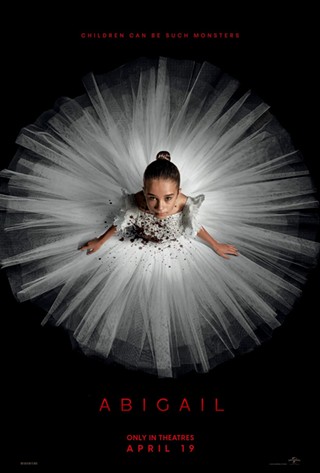For a first directorial effort, there's a lot to admire about Vera Farmiga's Higher Ground.
Farmiga, a character actress best known for her Oscar-nominated supporting turn in Up in the Air, quietly takes a trip behind the camera with this study of one woman's lifelong struggle with faith.
You'd expect to find many of this film's attributes in an actor's directorial debut: good acting, often from unexpected sources; long scenes and monologues; and uncomplicated visual techniques. But Farmiga hits the right tone with all of it and proves herself to be an effective, passionate first-timer.
The real question is why she chose this story.
Farmiga plays Corinne, who married very young because she was pregnant, and who converted to Christianity with her husband shortly thereafter. As teenagers in the 1970s, their conversion was linked to a nondenominational, less-traditional church, although it was most certainly a devout sect.
As happens in a lot of marriages, Corinne and Ethan (Joshua Leonard) begin to move apart over time, and she reaches out for God's guidance—but gets no sign from above. She was going to be a novelist, but she wound up here, as the wife of a church elder, raising some kids and doing nothing for herself. Is Corinne selfish to want more, even bad or wicked?
Because of its abstract nature, spirituality is not something that most films can convey or contain very easily, especially when it's being used to make a point. Farmiga therefore wrestles a bit with how to balance the interpretation of faith with the more-concrete elements of her film. It's a worthwhile attempt; she certainly deserves credit for not making a more-readily digestible film, even though such a move probably would have produced more-even results.
Credit Farmiga, too, for not lampooning religion. Every primary character in this film calls on God at some point, and she never looks down on any of them. It's important to do that, no matter what you, as a viewer, think of religion, because it would be disingenuous to showcase a story that the filmmaker can't present as worthwhile. Her characters believe, and Higher Ground doesn't judge them for it.
There is also a refreshing lack of morally compromised religious folk, too. It's very easy to go down that road, but Farmiga never does, deciding instead that Corinne's own battles are big enough. They turn out to be monolithic in nature: She never questions that God exists or that He has a plan for her, but Corinne does not feel overly connected to the man upstairs. Sometimes, it appears as though being moved by other peoples' faith is the only faith Corinne has.
Orson Welles was once quoted as saying, "If you want a happy ending, that depends, of course, on where you stop your story." For Higher Ground, the ending leaves the resolution hanging in the air. It is an end, no question, but it comes across more as a place to stop a movie than the ending of Corinne's story.
On the other hand, this film will likely be a happy beginning for Vera Farmiga as a filmmaker, should she choose to go that route. Her work is confident; she trusts relatively unknown actors with weighty subject matter and difficult characters; and she sets for herself a high bar of success. And she does succeed, more so than her first film does in the final analysis.










